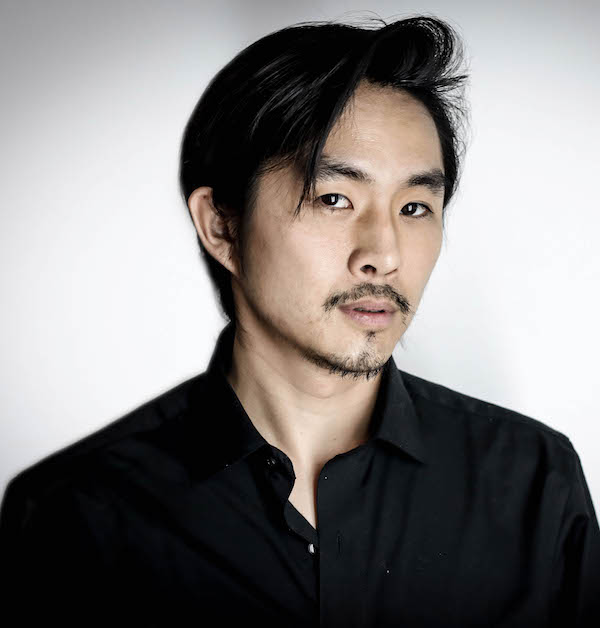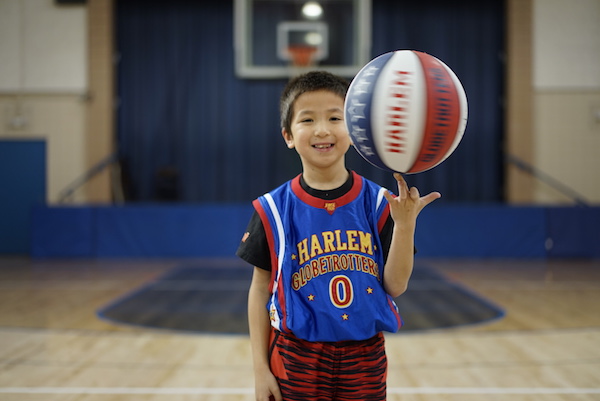Justin Chon’s “Gook” opens on an 11-year-old dancing in front of a building engulfed in flames, an image disarming, alarming and hypnotic.
Winner of the 2017 Sundance Film Festival NEXT Audience Award, the black-and-white feature with the taboo title brings us back to April 29, 1992, the day the verdict of the Rodney King case was announced, the day four white Los Angeles police officers were acquitted of beating African American Rodney King.
The city erupted in violence. Schools were closed. The National Guard and the Marines were deployed. A citywide curfew went into effect. Thousands were looting and setting fires. The city’s numerous Korean business owners stayed on rooftops, protecting their property with guns. The riots resulted in hundreds of millions of dollars in property damage. Two communities, Korean Americans and African Americans, were rife with hostility toward each other.
 “Gook” film still (Photo courtesy of Sundance Institute/Ante Cheng)
“Gook” film still (Photo courtesy of Sundance Institute/Ante Cheng)
In the sprawling expanse that is the City Of Angels, we discover the place where Korean American brothers Eli (Justin Chon, also the film’s writer and director) and Daniel (YouTube star David So) call home, somewhere in the throes of South Central, a far cry from Rodeo Drive, Hollywood, or anywhere a tour bus or first responder would ever willingly go. It’s where one can get jumped while staring down the barrel of a gun (which happens in the film more than once).
The story follows the brothers and their friendship with African American tomboy Kamilla (Simone Baker), the girl dancing in the opening scene. Kamilla’s a neighborhood kid who routinely hangs out at the brothers’ shoe store, sweeping floors and riding in Eli’s car, of which her family (Curtiss Cook Jr. and Omono Okojie) does not approve.
But Kamilla moves through both worlds, from her African American family at home where she lives, to the Asian Americans with whom she has found community. She is destined to grow a thick skin typical of those who live — and survive — such tough environs, but her energy stands transparently innocent. She is developing her views of the world, and of her place in it, unlike the solid racial realities which Daniel, Eli, and Keith so severely recognize and along which they live.
Eli scores some extra kicks to sell on the side, hoping to catch up on months of rent for the store, which was previously owned by their parents. Daniel dreams of becoming an R&B singer, penning lyrics and clocking time in the recording booth when he can.
Naturally, tensions abound at the forefront of the film, though not all are racially charged. Mr. Kim (Sang Chon, the director’s real-life father), the owner of the liquor store across the street from the brothers’ store, is at odds with Eli and Daniel — an intriguing dynamic of Korean (from Korea) clashing against Korean American (Korean being the adjective, American being the noun). One exceptional shouting match between Eli and Mr. Kim walks with a subdued rhythm that propels the scene as one of the film’s gems.
 Simone Baker in “Gook” (Photo courtesy of Sundance Institute/Ante Cheng)
Simone Baker in “Gook” (Photo courtesy of Sundance Institute/Ante Cheng)
 David So in “Gook” (Photo courtesy of Sundance Institute/Ante Cheng)
David So in “Gook” (Photo courtesy of Sundance Institute/Ante Cheng)
Keith (Curtiss Cook Jr.) harbors a deep resentment towards the brothers, the revelation of which substantiates their connection as well as the source of his animosity. He catches wind of their impending bounty and snaps. (Notably beautiful is to see the character’s discontentment stir in violent quietude while his cohorts celebrate around him, his anger rising to a blistering boil.)
It is interesting that these communities, so strikingly similar in socioeconomic struggles, are so sharply polarized against each other.
While Eli labors to keep the business afloat, Daniel makes light of the work. Their friction sets off Eli’s frustration when Daniel flirts with customers instead of focusing on sales, a scene in which So’s fleeting emotional performance shines.
The growing war in the metropolis coerces the two sides into battle, one to hold on to a family legacy, another to perhaps find restitution for the family that they lost. Their drawn-out belligerence immediately dissipates, though, in the face of heartbreaking tragedy.
Chon tackles the L.A. riots that played out publicly on television screens with a story that resonates with him personally (he was 11 years old when the L.A. riots occurred, while his parents owned a shoe store). A significant piece with a social (and unfortunately modern) relevance.
Director/Screenwriter: Justin Chon
Cast: Justin Chon, Simone Baker, David So, Curtiss Cook Jr., Sang Chon, Ben Munoz
94 minutes, English and Korean with English subtitles
4 More Fantastic Sundance Debuts:
Indie flicks not to be missed.
Patti Cake$
Patricia Dombrowski battle raps in Dirty Jersey while bartending at a local dive and dreaming of being acknowledged by her rap idol. The feature from Geremy Jasper is a mix of coming-of-age meets hip-hop musical with a dash of underdog and an enviable soundtrack to boot; Danielle Macdonald and Bridget Everett are ones to watch.
The Big Sick
The feature film based on writer-comedian Kumail Nanjiani and his wife’s relationship rings with honesty and vulnerability.
Joshua: Teenager vs Superpower
Winner of the Audience Award: World Cinema Documentary. Seeing a young teenager rise as a political activist and mobilize hundreds of thousands to stand against injustice in Hong Kong gave me goosebumps in the best of ways. A truly inspiring documentary, directed by Joe Piscatella, illustrating a young person standing up for a voice, independence, and freedom in the place where he lives.
I Don’t Feel At Home In This World Anymore
Winner of the Grand Jury Prize for U.S. Dramatic Competition. Macon Blair’s directorial debut takes us on a fun, dark ride. Ruth decides to take matters into her own hands when she discovers that someone has broken into her house, a path that eventually leads to explosive conclusions. Characters are uniquely somber, funny, absurd and grim.







